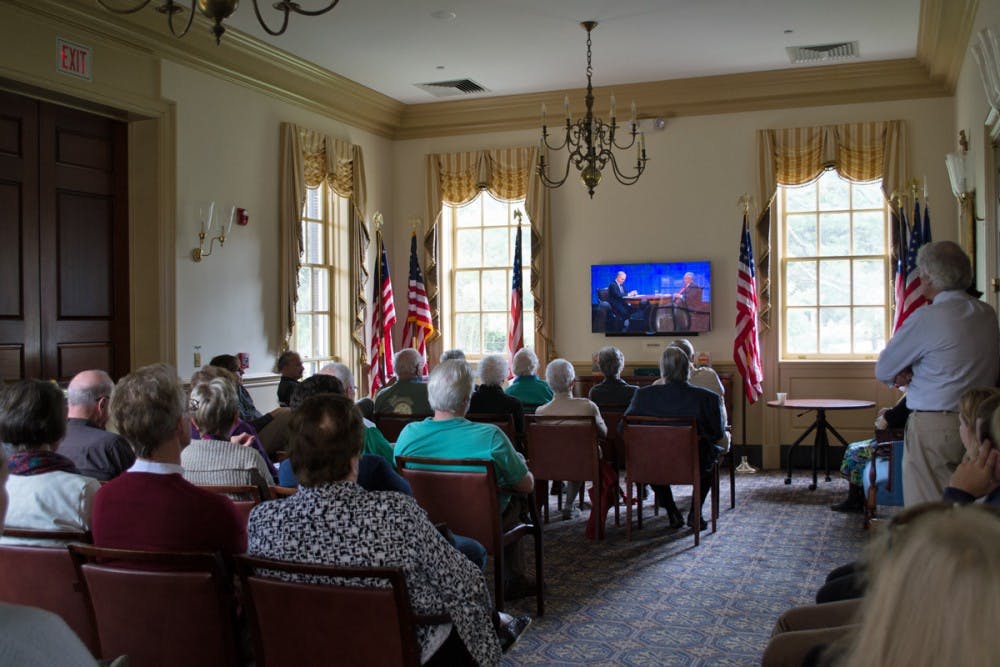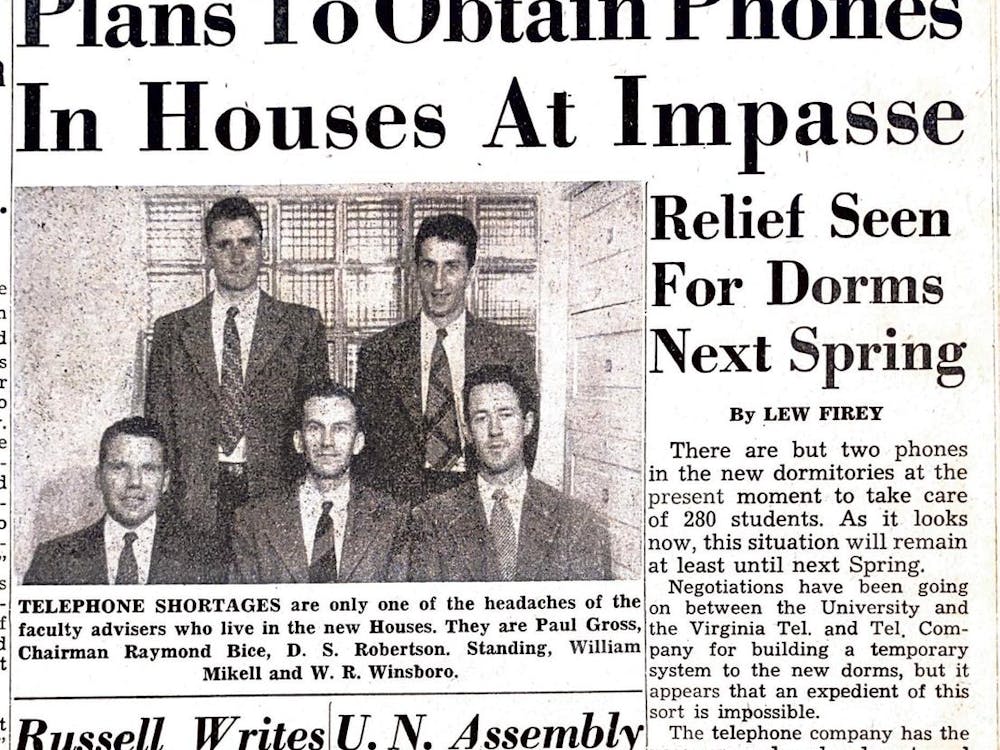The Miller Center hosted political writer and commentator William Kristol on American Forum Monday. Kristol discussed what President Donald Trump’s election means for the future of the Republican Party and said the party was not in crisis.
Douglas A. Blackmon, host of American Forum, introduced Kristol and explained the relationship Kristol has with Trump.
“Despite his pedigree, President Trump has called Kristol a ‘loser’ and a ‘dummy,’” Blackmon said.
Kristol’s work has included his experiences of founding and serving as editor-at-large of the political magazine, The Weekly Standard, and offering political commentary on several news networks.
Blackmon also recalled the time Kristol was interviewed on television after Trump made critical remarks of Sen. John McCain’s (R-Ariz.) prisoner of war status.
“Kristol went on NBC news and said of the now-president that ‘he’s dead to me,’” Blackmon said.
Regardless of the fact that Trump is now president, Kristol said his opinions have not changed.
“He’s unlikely to be a good president, from my point of view, either in terms of his character and judgement or many of his policies,” Kristol said. “It would be a very interesting test, not a test that you would want to run too often, of the Constitution and the institutions of American politics and American society.”
Kristol then noted concerns for the future of the Republican Party becoming a “Trumpified Republican Party,” which Kristol described as a nationalist, populist, pro-market, anti-trade, “America First” thinking party.
“That’s obviously not the kind of Republican Party I want,” he said.
He said the establishment of new parties shouldn’t be out of the question since a two-party political system was never written into the Constitution and three or four parties might be healthier for the country.
Kristol also said he’s concerned the Republican Party is becoming out of touch with the voters while the Democratic Party has the support of growing demographics, including young, college-educated Americans.
“It doesn’t look like a party in crisis, and in some ways it isn't, except that the president is Trump and he’s a Republican, and I don’t think he’s going to take the party in a good way,” Kristol said.
Adam Kimelman, second-year College student and incoming chair of the College Republicans, said hearing Kristol speak didn’t change his viewpoint in any serious way.
“Kristol was able to get up there and have the stage to bash Trump for 45 minutes, so I think you’re obviously going to be less optimistic about the future of the Republican Party after listening to him,” Kimelman said.
However, Kimelman said he did take away the fact that there is still a large faction of the party which is not on board with Trump.
“I think Kristol really embodies that part of the party,” Kimelman said. “He’s been a highly respected member of the conservative party for a really long time, and he hopes the president does well, but, at the same time, he’s not afraid to say that he doesn’t agree with a lot of Trump’s policies.”
After a discussion of Trump’s criticisms of the North American Free Trade Agreement, Kristol said he worries about what comes next.
“I just don’t know how much resilience the system has. Maybe nothing comes next,” Kristol said. “Maybe people decide, you know, this guy is a little erratic and a light will go on and things won’t change much. I think that's the most likely outcome.”





